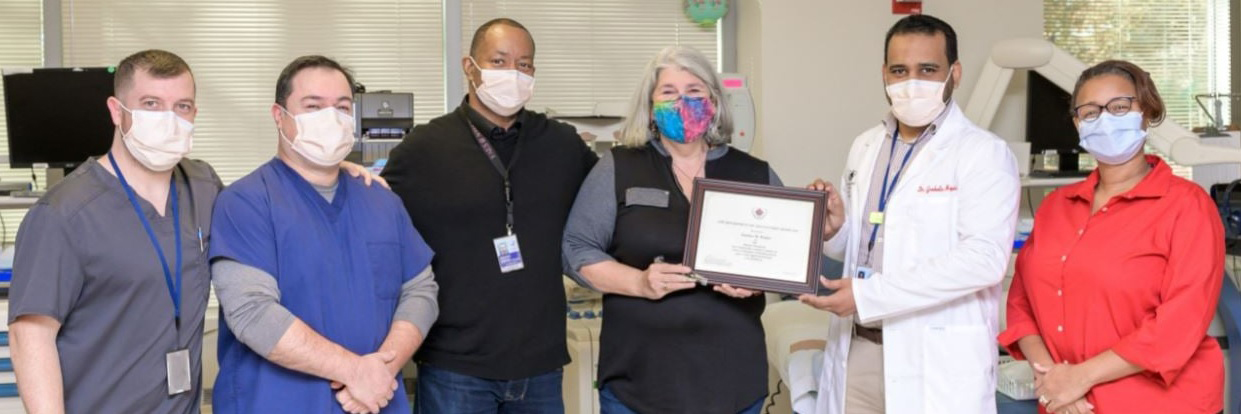
Much of the broad span of medical activity at the Clinical Center depends on an ample and safe blood supply. Volunteer donors provide much of the blood used at the hospital, not only for transfusions and operations, but also for laboratory research.
Some community donors have a long-term association with NIH, continuously giving blood over years and even decades. Donors can contribute whole blood and platelets at the NIH Blood Bank and its sister site on Fisher’s Lane.
The U.S. Food and Drug Administration is responsible for ensuring the safety of the Nation's blood supply and provides guidelines on how often people can safely donate blood products. Whole blood can be donated every eight weeks, while platelet donations can be given every 28 days (up to 12 times per year) at NIH.
Platelets are small cells that help the blood to clot and are manufactured in the bone marrow and stored in the spleen. They’re very important as they help damaged organs or blood vessels stop bleeding and give the body a chance to begin healing.
To remove platelets, a needle is placed in each arm. The Blood Bank offers donors the option of a one arm, single needle procedure for donors who may only have only one good access point. The one arm procedure takes a little longer than two arm method.
Blood flows through a needle into a machine that contains a sterile, disposable plastic kit specifically designed for this purpose. The platelets are isolated and channeled out into a special bag, and red blood cells and other parts of the blood are returned to the donor through a needle in the opposite arm.
One platelet donor, Sandra Walter, recently made her 200th donation to the NIH Blood Bank and shared more about her ongoing involvement as a donor.
Walter was interested in donating blood and heard about the NIH Blood Bank through a personal connection.
“One of my best friends already had been making platelet donations at the NIH Rockville donor center,” said Walter.
“She invited me to join her and this became a monthly event for both of us, going together. We’d have the shared experience and then go for dinner afterwards. It was more fun for both of us, doing this together. These joint visits got me started!”
While Walter enjoyed the social connection with her friend, she was impressed with her entire donation experience. She said she felt appreciated by the welcoming onsite staff, was impressed by the operational competence and even valued the reminder calls she received from the care team letting her know when she was eligible to donate platelets again.
“I knew I was in good hands with people who genuinely appreciated my effort -- they get to know you as a person, and relationships are built this way.”
Walter advises potential donors to set aside two hours for a visit to donate platelets. Potential donors fill out screening questions on a computer to see if they are eligible to donate, how they’re currently feeling and where they have traveled.
“For a while I could not donate because I had been to Mexico when the Zika virus was circulating. I was distressed that I was temporarily unable to donate– it really had become part of my life!” said Walter.
Prior to the donation, the staff take vital signs and check the iron levels of potential donors to ensure they are healthy enough to proceed.
During the platelet donation, donors can pick out a movie to watch or some other type of entertainment. When the process is finished patients are offered a chance to rest and something to eat or drink.
Walter encouraged interested people to get involved, even those who might have an underlying health issue. She recommended calling the Blood Bank and asking the staff about any concerns - in many cases it won’t affect your eligibility.
“The greatest thing you can do is give the gift of life – and in many cases that’s what donating blood or platelets provides. No matter your blood type, what you have is special and important to a patient in need,” added Walter.
-Robert Burleson
Interested in donating blood at NIH?
Prospective donors for the NIH Blood Bank can make the first step by visiting our Blood Donor page or by calling 301-496-1048 to donate blood and 301-496-4321 to donate platelets.

